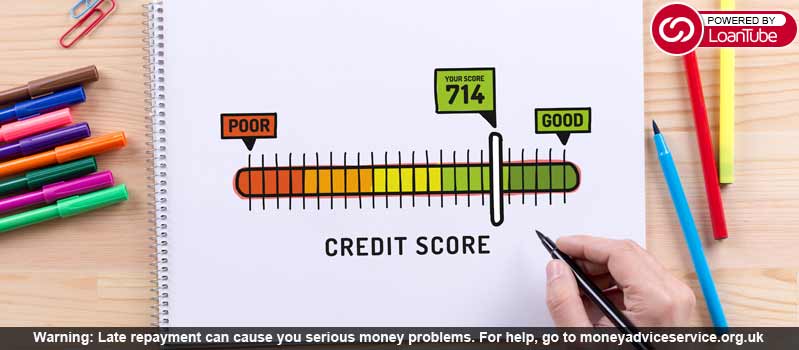Understand everything about FICO and the mechanism followed by them to generate FICO scores.
To understand about FICO, how it works, and the mechanism followed by them to generate a credit score, it is correspondingly necessary to know what are credit scores.
CREDIT SCORE
Credit scores are a numerical value based on an individuals account file. It depicts the creditworthiness of an individual. A credit score is primarily based on a credit report sourced from a credit bureau and is used by several pawnshops and lenders to estimate the danger if they grant money to the particular borrower.
This article will delve into the following sections with a viewpoint to discuss about FICO and how FICO Scores work.
FICO Scores
What are the minimum requirements for a FICO score?
What is a good credit score?
How often FICO Scores change?
Things to know about FICO scores
Reasons for your credit score
Why do FICO Scores change over time?
FICO Scores at each credit bureau
FICO SCORES
FICO scores were created by Fair Isaac Corporation, in 1989, and the scoring models have been modernised various times since. It has grown as an acknowledged and widely used credit score in the UK. The top lenders use FICO Scores as it helps them make credit-related judgments every year. These scores are computed based solely on information in consumer credit reports maintained at the credit agencies. By analysing this information, FICO Scores estimate your level of future credit risk.
It is important to realise that not every credit score offered for selling online is a FICO Score.
What are the minimum requirements for a FICO score?
- One account opened for at least six months or more.
- One account that has been reported to the credit bureau within the past six months.
- Accounts with no indication of decreased on the credit report.
The minimum scoring can be accomplished either by a single account or by multiple accounts on a credit file. In certain cases, the credit report qualifies for a FICO score may differ covering different FICO score reports.
What is a good credit score?
The description of the following credit ranges based on FICO Score 8 credit scores:
- Exceptional: 800+
- Very good: 740 to 799
- Good: 670 to 739
- Fair: 580 to 669
- Poor: 579 and below
There are other FICO Scores, such as Industry-specific FICO scores including FICO Auto Score 8 and FICO Bankcard Score 8 have a broader range of 250 to 900. There are also other models that are tailored to specific types of credits like 12-month loans, short-term loans, or instalment loans.
A good credit score is also expected to obtain convenient deals on loans, but if any person holds bad credit records, then they can also opt 12-month bad credit loan or short-term bad credit loan, as these credits are specially designed for people with bad credit ratings.
How often FICO Scores change?
FICO Scores are formed on the information assembled in your credit report at the credit bureau. Lenders report updated account information to the credit bureaus every month, which may or may not result in the change of your FICO Score. In a given period of 3 months, one in four people has a 20-point change in their scores. These scores also change over time as you make repayments.
FICO scores can also change due to the following types of account information changes:
- Payment history updates
- Increases/decreases in credit card balances
- Increases in duration since accounts were opened
- Adding/removing queries
- The mix of various types of accounts
Things to know about FICO scores
FICO Scores are used by the lenders to conclude the level of future loan risk. In addition to its base variant, FICO also extends industry-specific scoring models and scores for separate credit outputs, such as automobile loans, credit cards and mortgages.
Even if you view your FICO scores, they won’t certainly be the same scores that lender views when you apply for the loan.
Base FICO scores range from 300 to 850 and are made up of the following factors:
- Payment records: 35%
- Amounts owed: 30%
- Length of loan history: 15%
- New credit: 10%
- Credit mix: 10%
Reasons for your credit score
When a FICO Score is measured from your credit report, the credit reporting agency also provides up to five reasons that are profoundly impacting that distinct score. These reasons are usually negative because they are the reason, why the credit score isn’t higher.
Why do FICO Scores change over time?
As the information in your credit report changes, the new credit score based on your credit report also changes. Hence, your FICO Scores from a month ago doesn’t seem the same score when a lender gets it from the credit bureau.
FICO Scores at each credit bureau
There is FICO Scores for each of the three credit bureaus: Equifax, TransUnion and Experian. Each FICO Score is created on information the credit bureau holds on file about people.
FICO Scores from each credit bureau count only the data in your credit reports at that credit agencies. Your credit scores might be different at each of the credit agency. If your current scores from the credit bureaus are different, it’s because the information and data those bureaus have on you changes.
SOURCE: https://www1.myfico.com/?_ga=2.190888297.2113631911.1550488403-1106502045.1548740769

